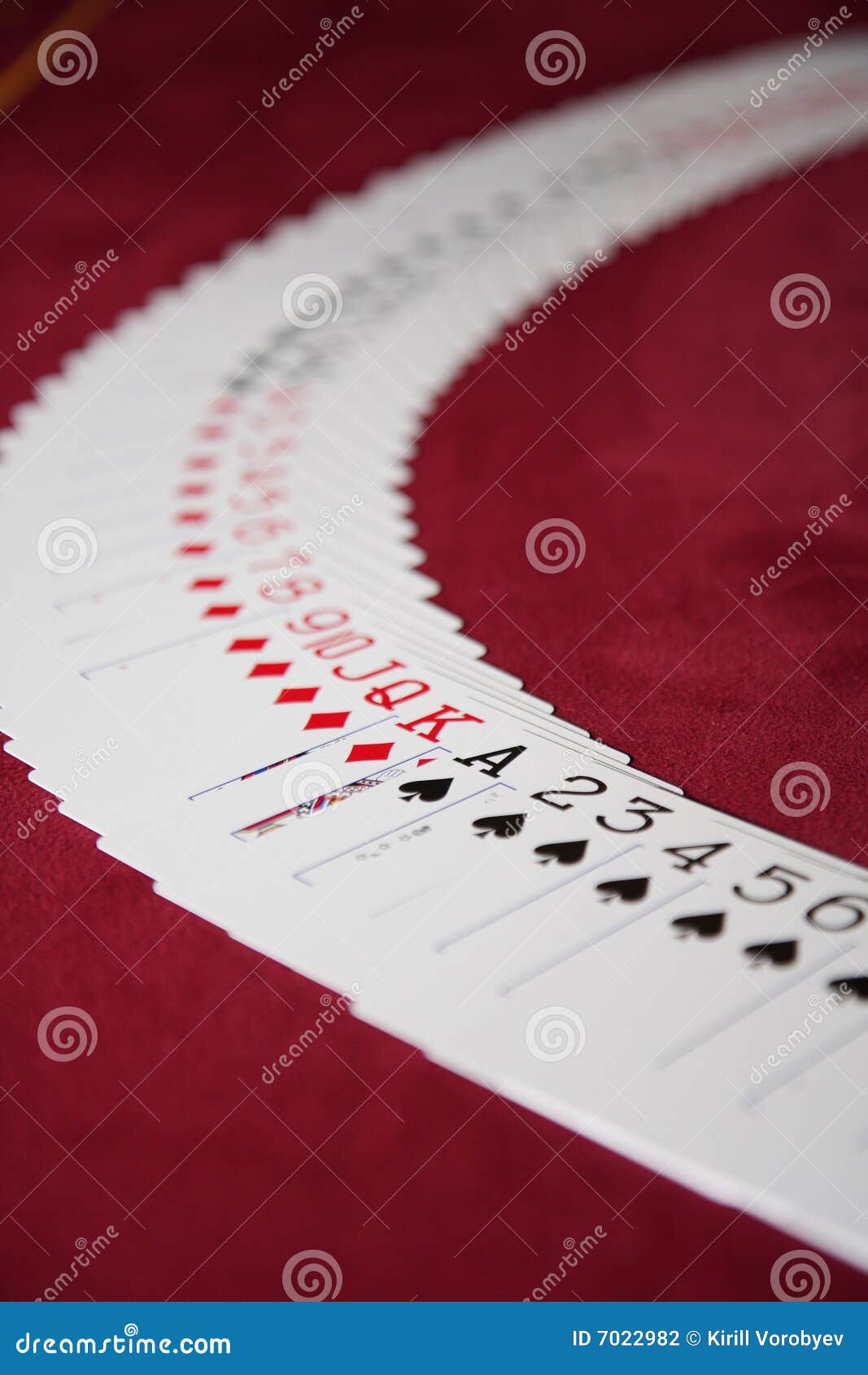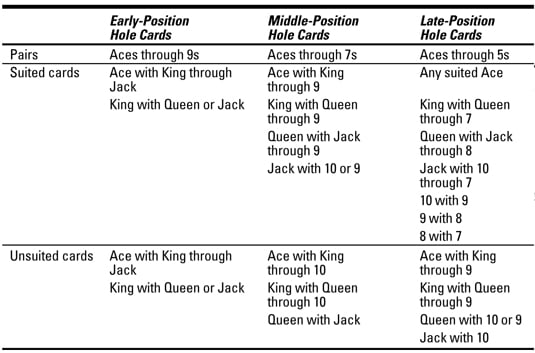Daniel Negreanu gives us a bit of strategy on Texas Hold'em in this 3 part video series. Very good lesson for seasoned poker players Part 1 of 3 - How to Win at Texas Hold'em with Daniel Negreanu. A lot of Texas Hold 'Em strategy is based on the cards in your hand. You must be willing to suffer through a series of poor hands (e.g. 5-8, 2-6, 4-9) without getting impatient. The good hands will come, eventually, and you'll be in a better position to take advantage of them if you don't waste your chips trying to get something out of nothing. If your cards beat his, you win the whole pot of $500 + $250 (that he just put in) + $250 (that you just put in) = $1000. You profited $750 from this gamble. If his cards beat yours, you get $0 back. You lost $250 from this gamble. Unleash Your Hidden Poker Memory: How to Win at Texas Hold'em by Turning Your Brain Into a Poker Tracking Machine Onika, Bennett on Amazon.com.FREE. shipping on qualifying offers. Unleash Your Hidden Poker Memory: How to Win at Texas Hold'em by Turning Your Brain Into a.
Raising is what makes the game of Texas hold'em exciting. You should raise often, especially against weak opponents. You should also pay attention to how often your opponents raise.
Any time an opponent raises before you act, it's time to reconsider whether your hand is good enough to play. I'm a fan of the raise or fold guideline.
If your hand isn't strong enough to re-raise the raiser, go ahead and give him credit for having a great hand and fold—unless you're already involved in the pot. In that case, it's okay to call asingle raise and see what the flop offers.
Pay attention to position, too. Players who raise from early position usually have stronger hands than players who raise from late position.
Winning poker is aggressive poker, too. Players who win a lot of money at Texas hold'em don't do it by calling a lot of hands down to the river.
If you have a big pair preflop, you should almost always raise. Big pairs play better against fewer opponents. The more people in the pot with you, the more likely it is that someone will drawout on you.
If you have more speculative hands preflop, try to get into the hand cheap with plenty of opponents. Then if you hit your hand, you can get paid off.
You should also raise aggressively preflop from late position if you have any reasonable hand and little opposition. You want to give yourself a chance of winning the blinds.
Poker chips, playing cards, and dice needed to play Texas Hold'em. (Courtesy of Javier Webar on Flickr. License: CC BY-NC).
Instructor(s)
Will Ma
MIT Course Number

15.S50
As Taught In
January IAP 2016
Level
Graduate
Some Description | |
Instructor(s) | Prof. |
As Taught In | Spring 2002 |
Course Number | 2.24 |
Level | Undergraduate/Graduate What is the trick to winning scratch offs. |
Features | Lecture Notes, Student Work |
Welcome!
This is one of over 2,400 courses on OCW. Explore materials for this course in the pages linked along the left.
MIT OpenCourseWare is a free & open publication of material from thousands of MIT courses, covering the entire MIT curriculum.
No enrollment or registration. Freely browse and use OCW materials at your own pace. There's no signup, and no start or end dates.
Knowledge is your reward. Use OCW to guide your own life-long learning, or to teach others. We don't offer credit or certification for using OCW.
Made for sharing. Download files for later. Send to friends and colleagues. Modify, remix, and reuse (just remember to cite OCW as the source.)
Learn more at Get Started with MIT OpenCourseWare
Course Description
Course Features
Course Description
Offered during MIT's Independent Activites Period (IAP), this short course covers the poker concepts, math concepts, and general concepts needed to play the game of Texas Hold'em on a professional level. Daniel negreanu best poker player.
IAP is a special 4-week term in January that provides members of the MIT community including students, faculty, staff, and alums with an opportunity to organize, sponsor and participate in a wide variety of activities and topics that are often outside of the regular MIT curriculum.
Faculty Advisor: Paul Mende

Other Versions
Other OCW Versions
OCW has published multiple versions of this subject.

15.S50
As Taught In
January IAP 2016
Level
Graduate
Some Description | |
Instructor(s) | Prof. |
As Taught In | Spring 2002 |
Course Number | 2.24 |
Level | Undergraduate/Graduate What is the trick to winning scratch offs. |
Features | Lecture Notes, Student Work |
Welcome!
This is one of over 2,400 courses on OCW. Explore materials for this course in the pages linked along the left.
MIT OpenCourseWare is a free & open publication of material from thousands of MIT courses, covering the entire MIT curriculum.
No enrollment or registration. Freely browse and use OCW materials at your own pace. There's no signup, and no start or end dates.
Knowledge is your reward. Use OCW to guide your own life-long learning, or to teach others. We don't offer credit or certification for using OCW.
Made for sharing. Download files for later. Send to friends and colleagues. Modify, remix, and reuse (just remember to cite OCW as the source.)
Learn more at Get Started with MIT OpenCourseWare
Course Description
Course Features
Course Description
Offered during MIT's Independent Activites Period (IAP), this short course covers the poker concepts, math concepts, and general concepts needed to play the game of Texas Hold'em on a professional level. Daniel negreanu best poker player.
IAP is a special 4-week term in January that provides members of the MIT community including students, faculty, staff, and alums with an opportunity to organize, sponsor and participate in a wide variety of activities and topics that are often outside of the regular MIT curriculum.
Faculty Advisor: Paul Mende
Other Versions
Other OCW Versions
OCW has published multiple versions of this subject.
Related Content
How To Win At Texas Hold'em Table Game
Course Collections
See related courses in the following collections:

